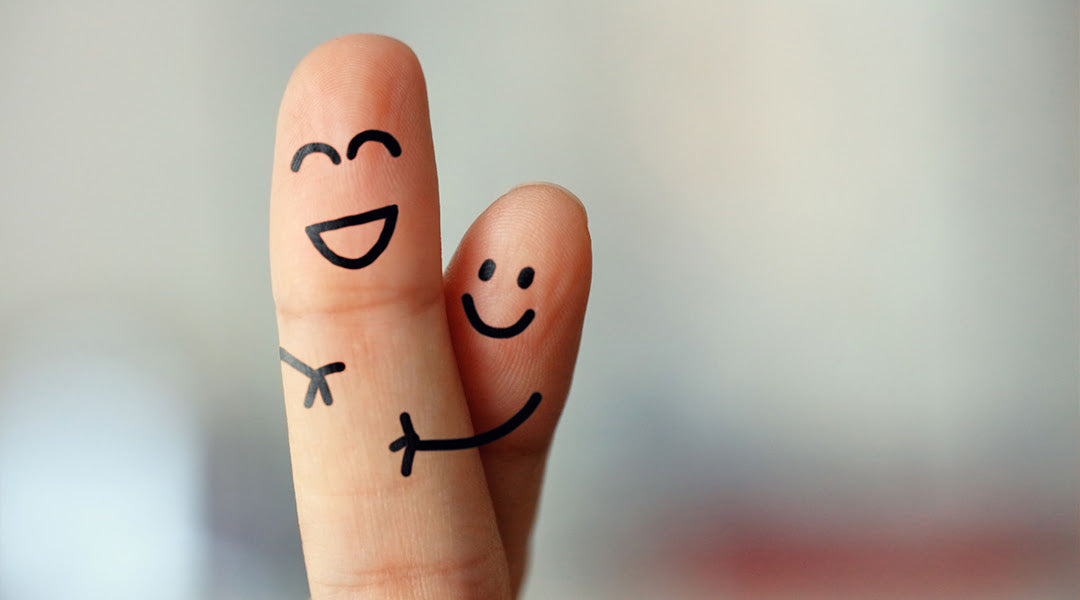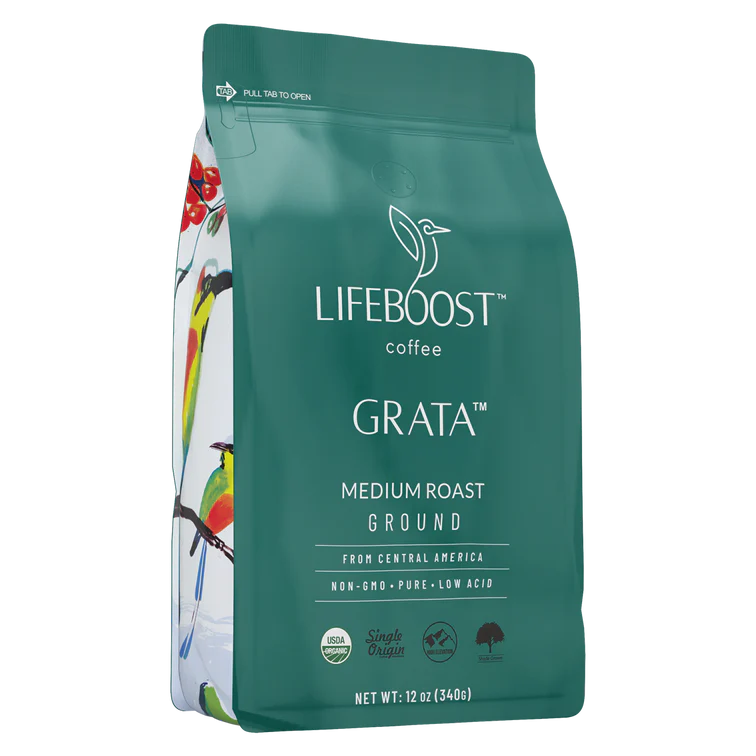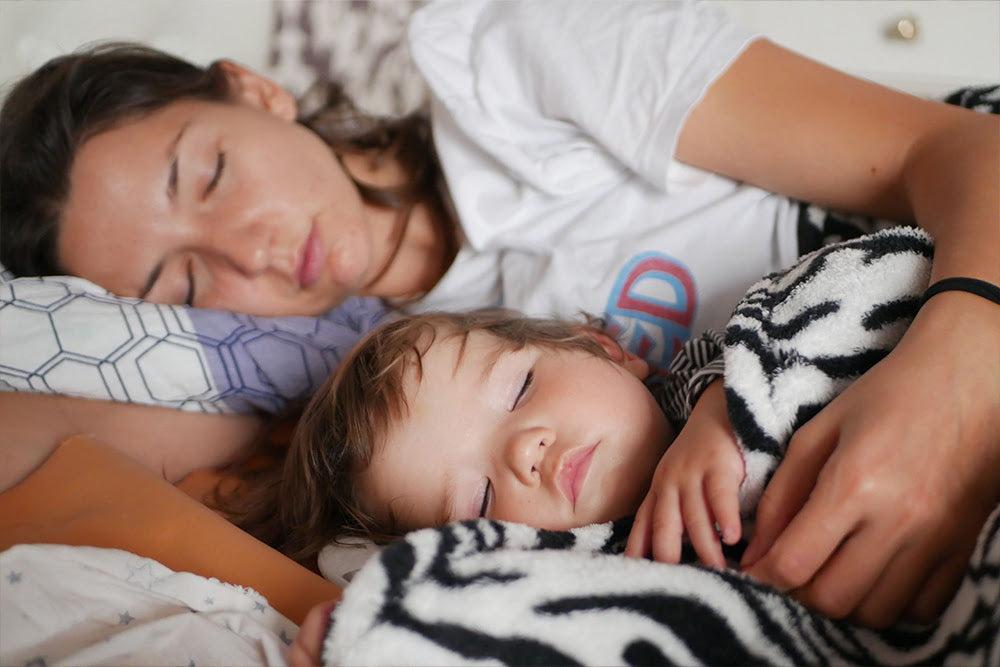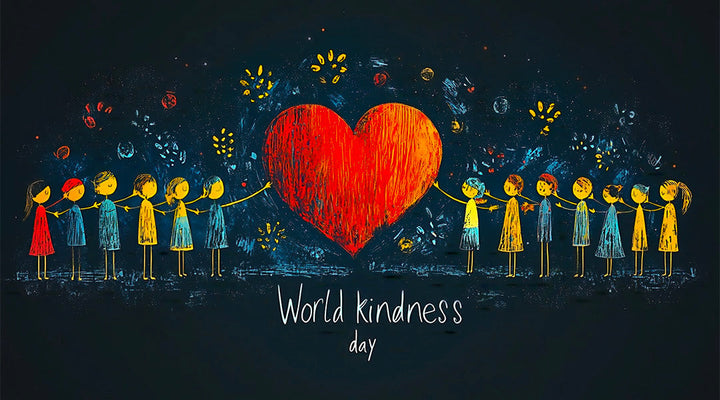
Giving And Receiving Health Through The Power Of A Hug
Are you a hugger?
Do you value the embrace of a loved one, friend, or even an enthusiastic acquaintance?
Hugs were once a common method of greeting and a routine practice between loved ones. Unfortunately, I personally believe we’ve gotten away from regularly giving and receiving these invaluable gifts.
Perhaps this can be blamed on busy lives, working in isolation, living far away from family and friends, or maybe there’s even some lingering fear after all we went through a few years ago with the onset and enduring of covid?
No matter the cause, how many of you have noticed that this once-common practice seems to be dwindling?
The thing is, should this practice be removed from our lives, our homes, and our world, we’d all suffer greatly.
In my experience, hugs are healing balms…for our minds, our hearts, and our very souls.
I’ve received and given hugs in times of grief that seemed to communicate a level of care and understanding that words alone could not accomplish.
I’ve longed for the warm embrace of loved ones who’ve since passed on, believing…rather knowing…such an embrace would offer a level of healing no medicine or rest could ever bring.
Sometimes I’ve given or received hugs that, almost unexplainably, make my day brighter.
And, there’s even been times when I’ve received a hug that somehow, in that moment, caused a release of pent up emotion, prompting healing I didn’t even know I needed.
Can any of you relate to these conveyed feelings, situations, or circumstances?
Showing love or even sharing simple kindnesses through a hug can bring benefits to nearly all aspects of your health and wellbeing: physically, mentally, and emotionally.
And today, we’d like to explore those benefits, detailing the power in what we often overlook as a simple act.
Hugging History And Common Facts

Some tend to shy away from hugging as this can be viewed as a romantic or intimate act. However, hugging certainly doesn’t have to be an expression of such feelings.
Hugging is considered “an essential form of physical touch for humans.”
Hugs can communicate compassion, understanding, support, and care.
Of course, hugging can be an act of intimacy, one which is thought to stem back thousands of years. Perhaps you’ve heard of the neolithic tomb discovered in 2007 in Italy, where the 6000 year old remains of a couple were found, the pair locked in a seemingly warm embrace.
No one definitively knows the official origin of this practice, but it was common in biblical times for friends, family, and acquaintances to greet one another with a “holy kiss.”
I can only imagine the level of discomfort this could bring to some, so I have to wonder if the practice of hugging began as an alternative to this lip-sharing greeting. Obviously, this is only speculation on my part, but the following facts surrounding the practice of hugging actually do have historic and scientific merit:
- Most people lead into a hug with one dominant arm. In neutral situations, those in which hugs are exchanged with strangers or acquaintances, most people hug to the right, or lead with their right arm. However, when more emotion is involved in hugging, researchers have observed fewer people lead with their right arm, switching to the left in such situations.
- The average hug lasts 3 seconds. Unfortunately the health benefits of a hug (which we’ll detail momentarily) are most often noticed when such an embrace lasts closer to 20 seconds. (some of these benefits are said to be unlocked at 10 seconds as well)

- Humans aren’t the only creatures who engage in hugging. Researchers from the Florida International University observed the Colombian spider monkey, a species known for its social tendencies, and found this animal actually engaged in two types of embraces, one resembling a typical hug and the other involving cheek to cheek contact. As in human hugging behavior, the spider monkeys typically initiated a hug from one dominant side, here with their hugs most often leading from the left side.
- In those instances where scientists have observed hugging or embracing behaviors, neither gender, race, or nationality had any affect on such exchanges, even in broad settings. In other words, in a true exchange of human embrace, kindness knows no boundary.
- The word “hug” is thought to stem from the ancient Scandinavian word “hugga,” which means to comfort.
- Some believe hugging was a means to prove friendship. Since this act requires both hands, a foe wouldn’t likely embrace another foe as they’d need a free hand to wield their sword, and you can’t pierce someone with your sword while you’re hugging them.
- We’ll get into the innate need for human contact in a moment, but some researchers firmly believe we are hard-wired to hug, explaining this to be evidenced even in infants who reach with both arms towards their loved ones from their cribs or bassinets.
- Those individuals who don’t receive regular human contact, including hugs, have been known to produce some of the same happy hormones involved in hugging when petting a cat or dog. In other words, cuddles with your pet are just as beneficial as pet-owners have known them to be.
While these facts and historic notions surrounding hugs can be interesting to learn, there’s actually a wealth of real, measurable rewards to be gained through this practice.
Below we’ll look at the top twelve ways engaging in such embraces on a regular basis could truly change your life.
Grata Medium Roast
A delightful choice for those seeking a balanced and smooth flavor profile
Shop Now
The Healing Power Of Hugging

1- Stress Reducer
When you’re stressed your body releases cortisol, a hormone that can increase heart rate, blood pressure, respiration, and muscle tension, as well as suppresses your digestive and immune systems.
But, due to the fact that our skin communicates both positive and negative touch stimuli to our sensory nerves, a simple hug can provide stimulation which prompts the release of oxytocin within your brain.
When oxytocin is released this hormone decreases the production and release of cortisol, thereby lowering stress levels and the unwanted responses that come with it (such as elevated heart rate, blood pressure, etc).
2- Immune Booster
Due to the negative effects of stress on the immune system, the stress-relieving effects of a hug can also boost your body’s defense forces (aka your immune system).
The oxytocin that is released when giving/receiving a hug can help your body fight inflammation, aid in your immune system’s abilities to heal wounds, and even suppress immune disorders.
White blood cells, also known as immune cells, are also needed in your body’s fight against invading pathogens, and a hug is thought to stimulate your thymus gland which may help to balance your body’s production of white blood cells.
3- Improves Heart Health
Desiring to observe the effects of hugging on heart health, the University of North Carolina conducted a study involving 59 women. In this study, those participants who had no contact with their partners suffered an increase in heart rate by 10 beats per minute.
However, those participants who received only a 20 second hug from their partner after each observed session decreased their heart rate by 5 beats per minute.
Those who received such hugs were also observed to have lower blood pressure and heart rate during times of intense stress.
4- Improves Sleep

Parents who have incorporated the practice of co-sleeping with their infants/children can attest that one benefit of this practice is improved sleep…at least for babies.
In this instance, the child feels at peace, experiencing less stress or fear being close to mommy or daddy’s side.
This close proximity and gentle touch also lowers levels of cortisol which doesn’t simply lower stress but also regulates the sleep-wake cycle.
The same is true for adults. But, in adults, high levels of stress throughout the day can later delay or prevent sleep at night. Giving and receiving hugs throughout the day lowers cortisol levels, reducing stress and regulating sleep cycles for a restful night of sleep.
5- Curb Cravings
We won’t retell the effects of hugging in regards to the release of oxytocin, but it is important to note that the release of this hormone has also proven effective in reducing cravings, typically here in relation to sugar, alcohol, and drugs.
6- Reduces Anxiety And Depression
The increase in oxytocin levels that results from a good, genuine hug aids in healing both physical pain (which is a common component in depression) and emotional pain.
Hugging can relieve feelings of loneliness, anger, and isolation, each of which can contribute to anxiety and depression.
But, the release of oxytocin can also directly lower anxiety levels as this hormone affects the levels of other hormones like endorphins, serotonin, and dopamine, all of which have been associated with positive emotions.
This is why many experts believe those who receive more hugs throughout the day experience fewer symptoms of depression.
7- Positive Effects On Child Development

Newborn babies benefit from skin to skin contact after birth as it promotes both relaxation, calmness, and a crucial bond for both mother (or father) and baby.
But, the bonds created in this type of contact not only offer immediate benefits, as this type of touch also helps these infants grow to bond more easily with others as they get older. And, this effect rings true of hugging as well.
Consider the following study involving orphaned children in Russia and Romania:
A group of researchers observed two groups of children: adopted children whose first years were spent in orphanages where they received little to no physical contact, and children who were raised by affectionate families (receiving hugs/embraces).
The team discovered those children who received no physical affection had significantly lower levels of a hormone called vasopressin. This hormone has numerous roles within the body, including the role it plays in familial connection and bonding.
Hugs also provide stimulation in the brain that children need for healthy growth and development.
On the flipside, children who lack physical contact suffer from increased stress and anxiety which is often evidenced by behavioral problems, poor sleep, nightmares, and poor appetite.
Concerning children, author and family therapist Virginia Satir has said, “We need four hugs a day for survival. We need eight hugs a day for maintenance. We need twelve hugs a day for growth.”
8- Promotes An Overall Sense Of Health And Well Being

We’ve discussed the effects of hugging on the release of oxytocin, but this hormone isn’t the only one associated with a friendly embrace.
When you give/receive a hug, your brain also releases endorphins.
Sometimes endorphins are called the happy hormones as their release prompts feelings of happiness, but endorphins also support an overall feeling of pleasure and wellness.
When you regularly engage in such friendly, warm embraces, your entire outlook can improve, making you feel happy and healthy.
9- Promotes Connectivity
When oxytocin is released as your brain receives the positive stimuli associated with an embrace, such as a hug, you don’t simply feel better, you actually feel more connected to others as well.
An absence of such embracing not only leads to feelings of loneliness, depression, and anxiety, but it can exacerbate disconnection.
So, seek to give and receive hugs regularly to not only alleviate feelings of loneliness and disconnection but to foster connectivity with those around you.
10- Increased Energy, Improved Concentration, Restful Sleep

I realize that’s a lot to include in one section, but those three benefits were equally observed in a study involving senior citizens.
In New York, a retirement home conducted a study seeking to observe how hugging or physical contact could ease feelings of loneliness, a common woe evidenced in folks as they age.
The study, or program, was called “Embraceable You,” and the goal was to encourage touch, or physical contact, between residents and staff in order to improve the overall well being of the residents.
The results of this study were powerful, with “those residents who were touched or hugged three or more times a day having more energy, feeling less depressed, better able to concentrate, and getting more restful sleep,” than those who were hugged less (or not at all).
11- Increases Trust And Safety
As I’m sure many of you are aware, when you receive a hug, you can generally feel the intentions of the person giving the hug. You can sense sincerity, compassion, kindness, or a lack thereof, in the embrace.
When you receive kindness through regular hugs from parents, family, and friends, this builds a sense of safety and trust with others. This also enhances your intuition, allowing you to sense sincerity (or a lack of it) in others as you age.
Regular hugs amongst friends also aids in open and honest communication, which increases trust and safety in relationships as well.
Hugging has also been shown to promote feelings of safety by alleviating fear.
One study found that even hugging an inanimate object, such as a teddy bear, soothed existential fear.
12- Boosts Self-Esteem

Physical contact, most specifically in the form of a hug, can make us feel safe and loved.
And, the connectivity promoted with hugging doesn’t only improve our relationships with others, but fosters a better relationship with our self as well.
When we regularly receive hugs from our parents, partners, and friends, we become more self-confident and happy. This then improves our self-esteem and increases our ability to self-love.
Beyond Hugs
Aside from the powerful embrace of a hug, simply showing kindness to others can have many similar, positive effects on your health: physically, mentally, and socially.
While giving and receiving hugs offers effective, proven benefits to your health and well being, an embrace that is truly crucial, even essential to a healthy life, for those who truly can not benefit from physical touch or lack a means to regularly receive it, there’s something else that can provide numerous benefits as well.
Aside from the positive power of physical touch, another element of hugging is the kindness shared between those engaging in the embrace.
So, as we close out our time today, let’s consider the broad benefits beyond a hug, those given and received when we simply show true, genuine love and kindness to others…
- Expressing love lowers cholesterol and blood pressure levels.
- Those individuals who express love more regularly don’t easily get stressed out (compared to those who do not regularly show love).
- Showing love and affections leads to a longer lifespan.
- People who regularly show affection are often more physically active, leading to additional health benefits.
- Those who regularly express affection, showing love and kindness to others, reportedly have less instances of depression and anxiety.
Showing love to others, or expressing compassion, understanding, and care through the giving and receiving of hugs throughout your day, and throughout your life, enhances your health, wellbeing, and the lives of others.
So, I challenge you today and always, hug your children, your partners, your family, and friends. Do not withhold love, but express it freely for a happy, and healthy, life.
Enjoy our new Medium Roast
Get a fresh morning coffee
Check out Lifeboost Coffee Medium Roast.
- https://www.psychologytoday.com/us/blog/the-asymmetric-brain/201901/national-hugging-day-five-scientific-facts-about-hugging
- https://spectrumnews1.com/ca/la-west/human-interest/2021/05/05/the-history-of-hugs
- https://connect.bcbsil.com/health-and-wellness/b/weblog/posts/a-hug-only-takes-10-seconds-but-the-benefits-last-forever
- https://www.feelgoodfamily.cz/fun-facts-about-hugging/
- https://www.ncbi.nlm.nih.gov/pmc/articles/PMC6442937/
- https://www.medicalnewstoday.com/articles/touch-starved#causes
- https://www.ncbi.nlm.nih.gov/pmc/articles/PMC5223438/
- https://www.blood.co.uk/news-and-campaigns/the-donor/latest-stories/functions-of-blood-its-role-in-the-immune-system/
- https://www.happify.com/hd/8-reasons-why-you-need-at-least-8-hugs-a-day/
- https://www.sclhealth.org/blog/2019/07/the-power-of-hugs-and-how-they-affect-our-daily-health/
- https://pubmed.ncbi.nlm.nih.gov/15740822/
- https://greatergood.berkeley.edu/article/item/four_ways_hugs_are_good_for_your_health
- https://www.medicinenet.com/how_do_hugs_make_you_feel/article.htm
- https://www.unicef.org.uk/babyfriendly/baby-friendly-resources/implementing-standards-resources/skin-to-skin-contact/
- https://greenwichpediatrics.com/12-hugs-a-day/
- https://www.uselessdaily.com/news/12-interesting-facts-about-hugs/
- https://www.concorde.edu/blog/can-hug-have-therapeutic-benefits
- https://www.psychologytoday.com/us/blog/the-asymmetric-brain/202304/getting-more-hugs-is-linked-to-fewer-symptoms-of-depression
- https://news.asu.edu/content/study-expressing-love-can-improve-your-health
- https://news.asu.edu/content/study-expressing-love-can-improve-your-health
- https://acendahealth.org/love-is-in-the-air-4-health-benefits-of-love/
- References for the article to confirm data and information.










